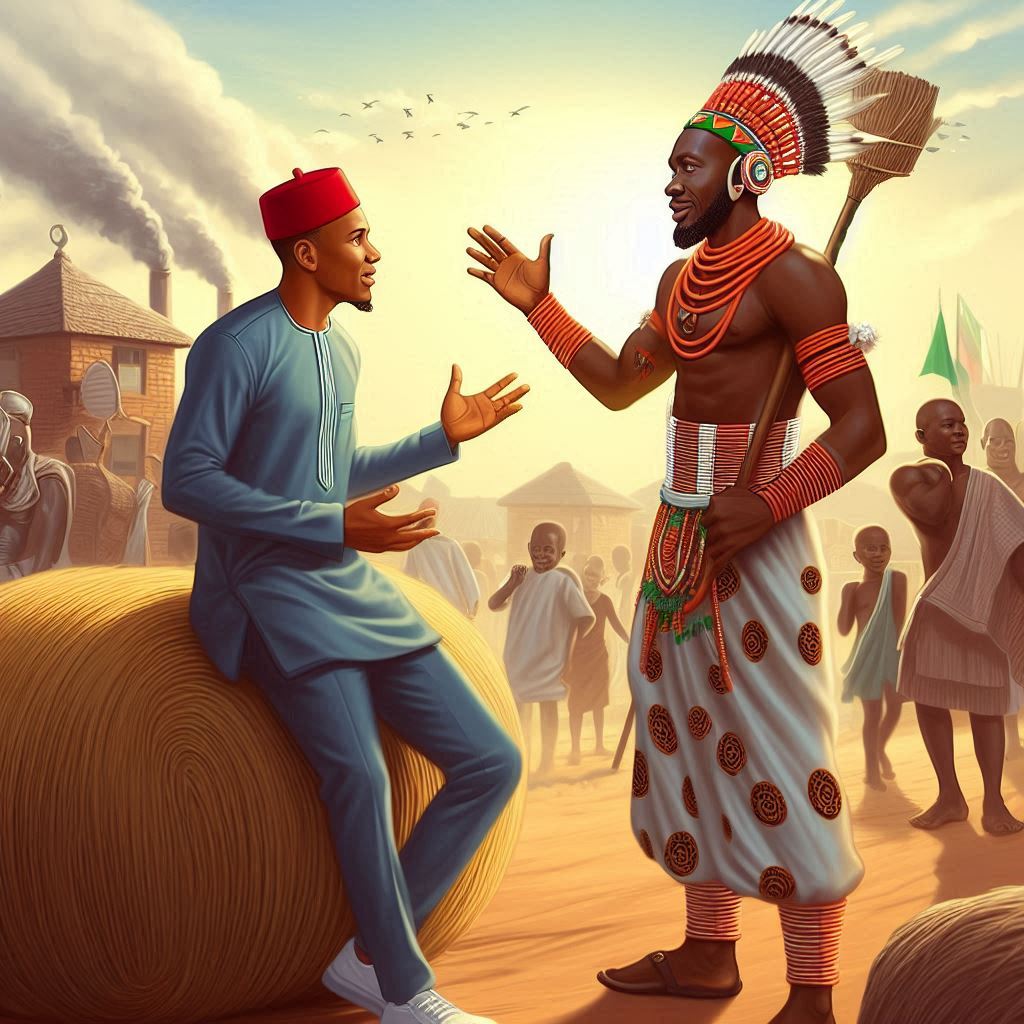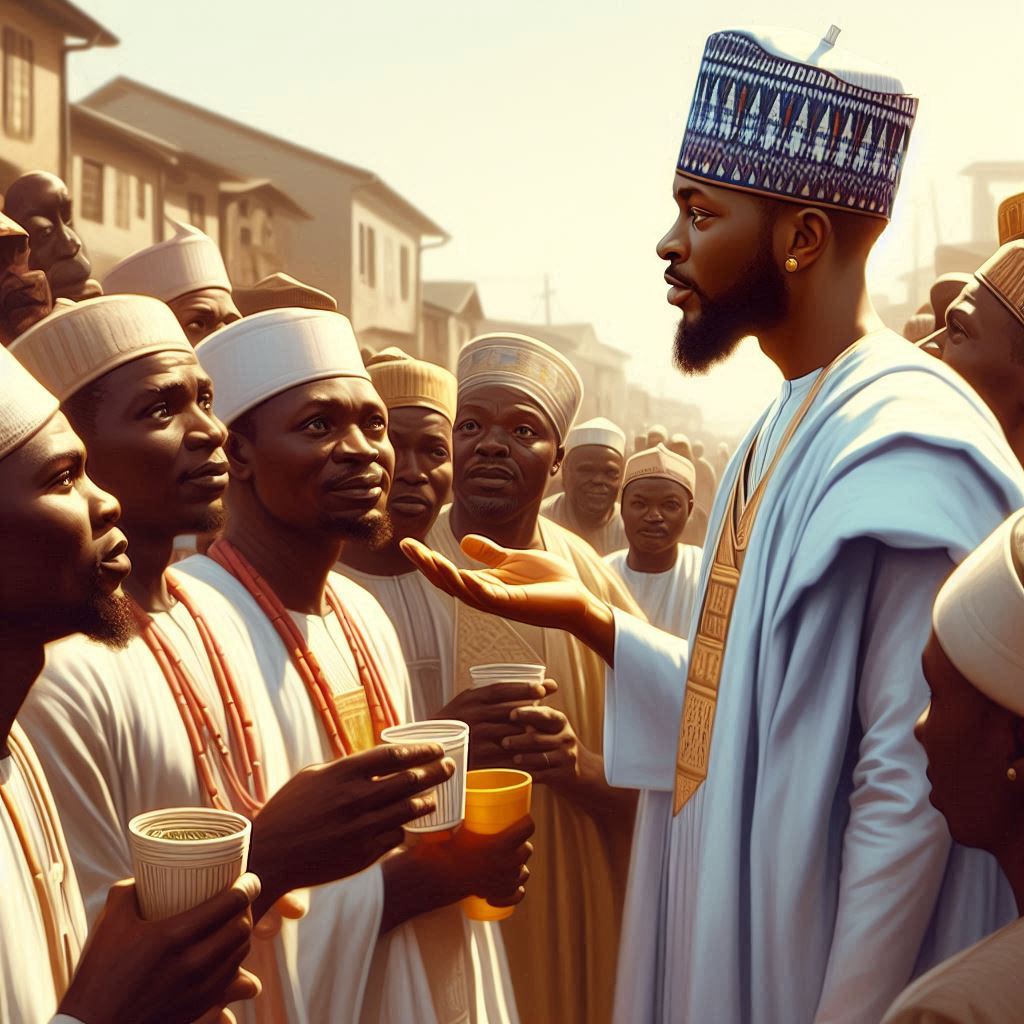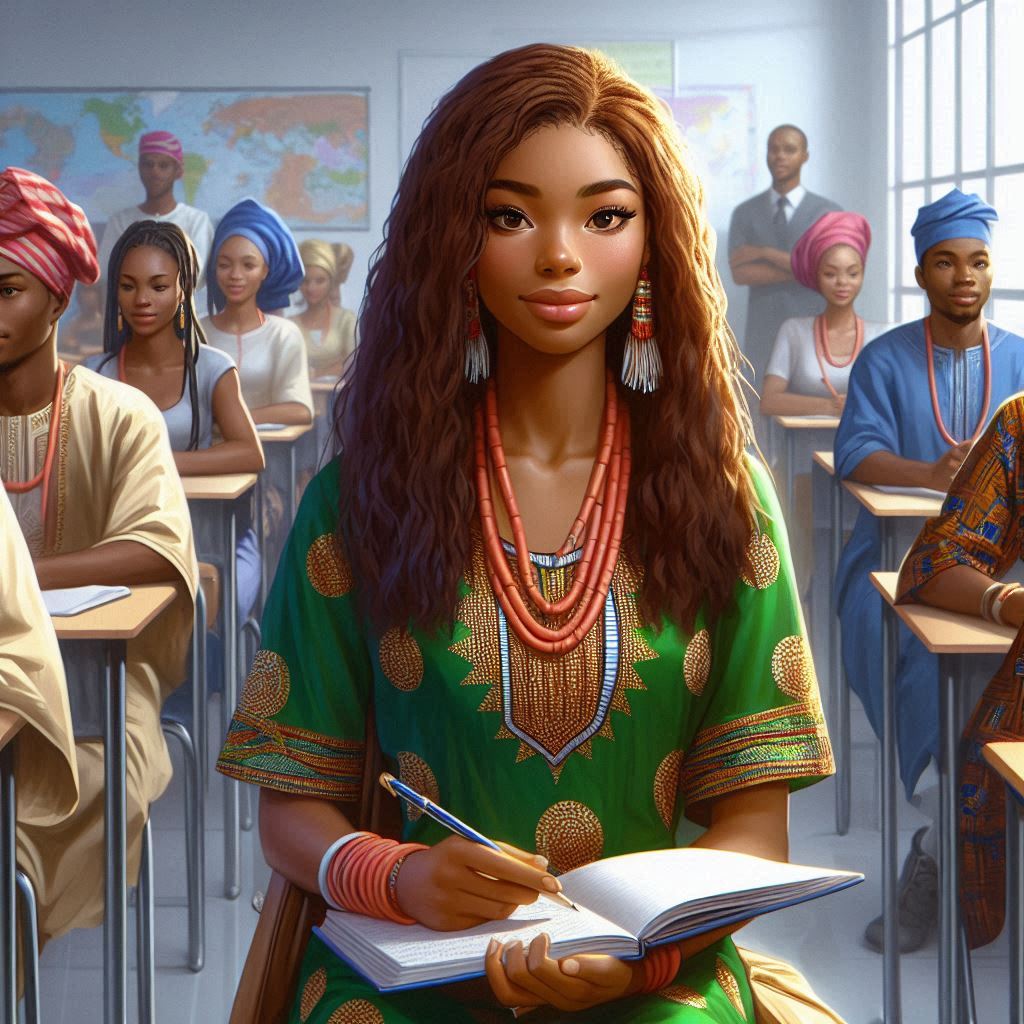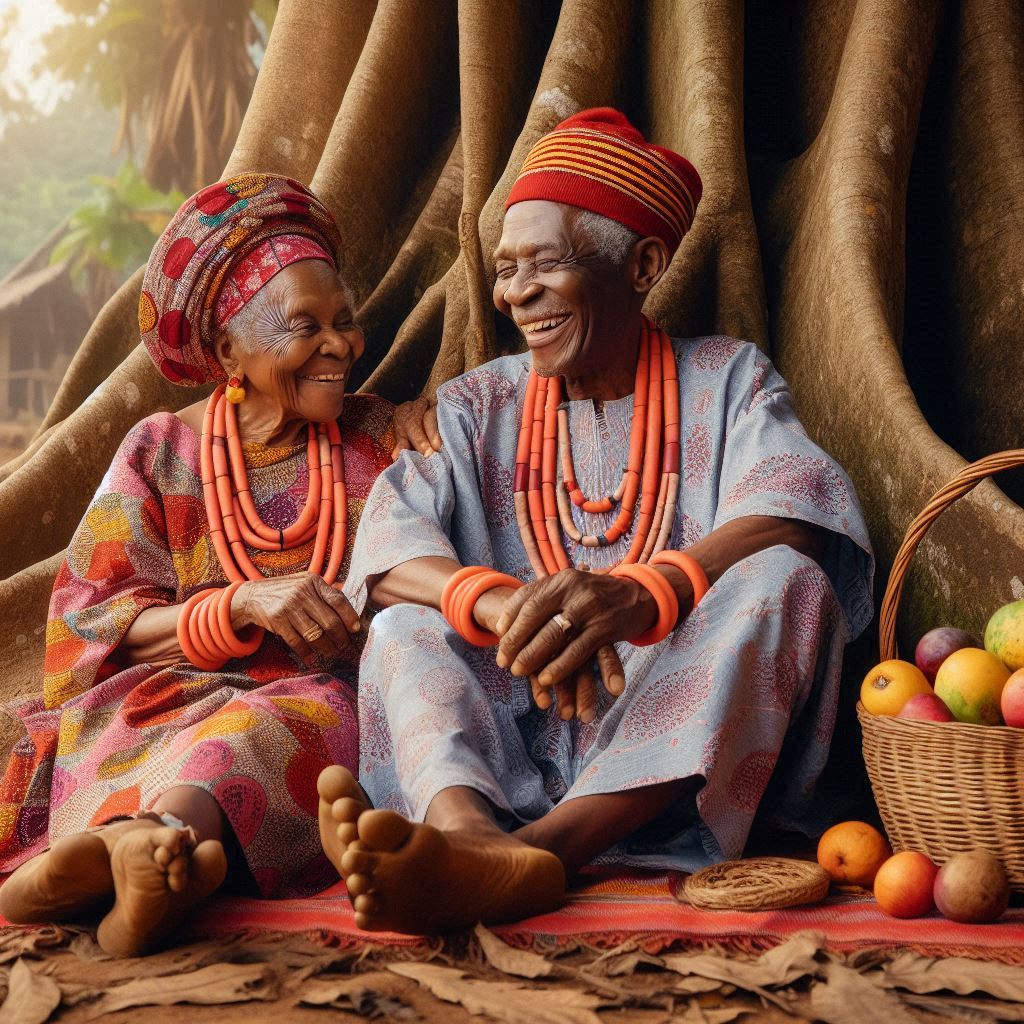Introduction
Nigerian languages are an integral part of the country’s rich cultural heritage. Over 500 languages are spoken across Nigeria, each contributing uniquely to its literary and folkloric traditions.
This linguistic diversity is not just a communication tool but a vessel for history, identity, and culture.
The Diversity of Nigerian Languages
Nigeria is home to a myriad of languages, including Yoruba, Igbo, and Hausa. These three languages are among the most widely spoken. Each language has its own distinct dialects, proverbs, and oral traditions.
This linguistic variety enriches the nation’s literature and folklore, offering a tapestry of stories and wisdom.
Literature: A Mirror of Culture
Nigerian literature captures the essence of its people’s lives, struggles, and triumphs. Writers use their native languages to express unique cultural experiences.
For instance, Chinua Achebe’s “Things Fall Apart” uses Igbo language elements to depict traditional Igbo society. This linguistic choice adds authenticity and depth to the narrative.
Folklore: The Heartbeat of Tradition
Folklore in Nigeria is a treasure trove of myths, legends, and moral stories. These tales are often passed down through generations in native languages.
Yoruba folktales, for example, feature trickster figures like the tortoise, teaching lessons through clever narratives. Hausa folklore includes tales of spirits and heroes, reflecting their cultural values.
The Role of Proverbs
Proverbs play a significant role in Nigerian languages. They encapsulate wisdom and cultural values in concise expressions. In Igbo culture, proverbs are seen as the palm oil with which words are eaten.
They are used extensively in both literature and everyday conversation to convey deeper meanings and truths.
The Importance of Preserving Nigerian Languages
Preserving Nigerian languages is crucial for maintaining cultural heritage. Language is a key to understanding history, traditions, and social norms. When languages die, valuable cultural knowledge is lost.
Thus, efforts to document and promote these languages in literature and education are essential.
Promoting Nigerian Languages in Literature
Promoting Nigerian languages in literary works encourages cultural pride and identity. Authors like Wole Soyinka and Buchi Emecheta write in or incorporate their native languages, bringing global attention to Nigerian linguistic richness.
This practice not only preserves the language but also educates readers about Nigerian culture.
Challenges and Solutions
Despite the importance of Nigerian languages, many are endangered due to globalization and urbanization. English often dominates, especially in urban areas and formal education.
To combat this, there must be concerted efforts to include native languages in school curriculums and media.
In general, Nigerian languages are vital to the country’s literature and folklore. They carry the essence of Nigerian identity, culture, and wisdom.
Preserving and promoting these languages in literary works is essential for maintaining the rich cultural heritage of Nigeria. Through literature, the beauty and depth of Nigerian languages can be celebrated and kept alive for future generations.
Role of Nigerian Languages in Literature
Nigerian languages play a vital role in literary works, adding cultural richness and authenticity to the narratives. They are used in various forms such as novels, poems, and plays, enhancing the overall reading experience for audiences.
How Nigerian Languages are Used in Literary Works
- Dialogue: Nigerian languages are often used in dialogue between characters to showcase the diversity and authenticity of the culture.
- Symbols: Words or phrases from Nigerian languages are used as symbols to represent certain emotions, traditions, or beliefs.
- Proverbs: Nigerian proverbs are incorporated into literary works to provide wisdom and insight into the culture.
- Names: Characters in literary works are given Nigerian names to reflect the cultural background and authenticity of the storyline.
- Descriptive Elements: Nigerian languages are used in descriptive elements to create a sense of place and atmosphere in the narrative.
Examples of Popular Nigerian Authors
Several Nigerian authors have successfully incorporated Nigerian languages into their works, enriching their storytelling and connecting with a wider audience. Some notable examples include:
- Chinua Achebe: Known for using Igbo language in his novels, such as “Things Fall Apart,” to depict the culture and traditions of the Igbo people.
- Wole Soyinka: A Nobel laureate who incorporates Yoruba language and traditions in his plays and poems, adding depth and authenticity to his work.
- Chimamanda Ngozi Adichie: A contemporary author who seamlessly weaves Igbo phrases into her novels, like “Half of a Yellow Sun,” to showcase the Nigerian identity.
- Ben Okri: Uses pidgin English and indigenous languages in his writing to capture the essence of Nigerian folklore and mystical storytelling.
- Sefi Atta: Incorporates Hausa language and cultural references in her works to explore themes of identity and belonging in contemporary Nigeria.
These authors have successfully utilized Nigerian languages to enhance the depth, authenticity, and cultural richness of their literary works, contributing to the preservation and celebration of Nigerian folklore and tradition.
Read: The Role of Psychology in Nigerian Corporate Sector
Representation of Nigerian Languages in Folklore
Nigerian Languages in Traditional Folktales
Nigerian folklore is rich with stories told in native languages. These folktales reflect the cultural values of various ethnic groups. They are often passed down orally from one generation to another.
Each ethnic group in Nigeria has its unique stories and characters. Yoruba folktales feature trickster figures like Tortoise, while Igbo tales highlight moral lessons through animals and humans.
Hausa folktales often incorporate proverbs and wise sayings.
Folktales in Nigerian languages are a means of teaching and preserving societal norms. They use local dialects and idioms, making the stories relatable and engaging.
These stories are typically set in familiar environments, enhancing their relevance.
The use of native languages in storytelling adds authenticity and depth to the tales. It ensures that the audience fully grasps the intended messages and nuances.
Importance of Preserving Folklore in Native Languages
Passing down folklore in native languages is crucial for preserving cultural heritage. Language is a vital part of identity and cultural expression.
When folklore is transmitted in its original language, it maintains its original meaning and context. This practice helps to keep the language alive and vibrant among younger generations.
Folktales in native languages foster a sense of pride and belonging. They connect individuals to their ancestral roots and traditions. Storytelling sessions in local languages are community bonding experiences.
They bring people together, fostering unity and a shared sense of history. Children learn not only the stories but also the values and ethics embedded in them.
Moreover, folklore in native languages is a repository of traditional knowledge. It encompasses historical events, practices, and beliefs unique to each community.
By preserving these stories, we safeguard a wealth of indigenous knowledge. This knowledge can be a source of inspiration and guidance for future generations.
Challenges and Solutions
Despite its importance, preserving folklore in native languages faces challenges. Globalization and the dominance of English threaten the survival of many Nigerian languages.
Younger generations are increasingly losing fluency in their mother tongues. To counter this, proactive measures are needed.
One solution is incorporating folklore in native languages into formal education. Schools can include storytelling sessions in their curricula.
This approach will help students appreciate and learn their local languages. Another strategy is using modern technology to record and distribute these stories.
Audio and video recordings of folktales can reach a wider audience. Social media platforms can also be used to share and celebrate these stories.
Community efforts are equally vital. Elders and cultural custodians should actively engage with the youth. Organizing cultural festivals and storytelling events can revive interest in native languages.
Encouraging families to speak their mother tongues at home is also crucial. It ensures that children grow up fluent and comfortable in their native languages.
In essence, The representation of Nigerian languages in folklore is essential for cultural preservation. Folktales in native languages teach, entertain, and instill values.
Preserving these stories is a collective responsibility. By doing so, we ensure the survival of our languages and heritage. Let us celebrate and protect our rich linguistic diversity through the power of storytelling.
Read: How to Start a Private Psychology Practice in Nigeria
Challenges of Incorporating Nigerian Languages in Literature
Nigerian authors face numerous challenges when incorporating native languages into their works.
These challenges stem from both practical and systemic issues, making it a daunting task. Below, we explore these challenges and their implications for the literary landscape.
Limited Publishing Opportunities
Many publishers prefer works in English due to its wider market appeal. This preference limits opportunities for authors writing in Nigerian languages.
As a result, these authors often struggle to find publishers willing to invest in their works. The market demand for literature in indigenous languages remains low, further discouraging publishers.
Lack of Standardization
Nigerian languages often lack standardized orthographies, making writing and editing challenging. Without a unified writing system, authors face inconsistencies in spelling and grammar.
This lack of standardization can confuse readers and reduce the perceived quality of the work. Moreover, it complicates the translation and adaptation of these works.
Limited Audience and Market
The readership for literature in Nigerian languages is significantly smaller than for English works. This limited audience reduces the potential market for such literature.
Authors and publishers alike find it hard to justify the financial risk. Consequently, the financial viability of producing literature in indigenous languages is often questioned.
Inadequate Educational Support
Educational systems in Nigeria prioritize English over indigenous languages. This prioritization impacts the literacy levels in native languages.
As a result, there are fewer proficient readers and writers in these languages. This lack of educational support hinders the development of a robust literary tradition in Nigerian languages.
Cultural and Linguistic Diversity
Nigeria’s vast linguistic diversity poses a unique challenge. With over 500 languages, catering to all is nearly impossible. Authors must decide which languages to prioritize, often leading to the marginalization of smaller language groups.
This diversity can also fragment the audience further, complicating marketing and distribution efforts.
Lack of Recognition and Support
Insufficient Institutional Support
Government and institutional support for literature in Nigerian languages is minimal. There are few grants, awards, or incentives for authors working in these languages.
This lack of support stymies the growth of a vibrant literary culture. Institutions must step up to promote and preserve these linguistic heritages.
Limited Media Coverage
Works in Nigerian languages receive scant media attention compared to those in English. This lack of coverage reduces public awareness and interest.
Without media promotion, these works struggle to gain traction and recognition. Authors find it challenging to reach a broader audience and build a following.
Societal Attitudes and Prestige
Societal attitudes often favor English as the language of prestige and modernity. This perception undermines efforts to elevate indigenous languages.
Authors writing in native languages may face societal prejudice and dismissal. Changing these attitudes is crucial for fostering a supportive environment for these works.
Lack of Critical Infrastructure
There is a dearth of critical infrastructure to support Nigerian language literature. Libraries, bookstores, and digital platforms rarely stock or promote such works.
The absence of critical infrastructure limits access and visibility. Efforts to build this infrastructure are essential for the survival of indigenous language literature.
In a nutshell, Nigerian authors encounter significant challenges when incorporating their native languages into literature. Addressing these challenges requires concerted efforts from publishers, institutions, and society.
Only then can Nigerian languages thrive in the literary world, preserving the nation’s rich cultural heritage.
Read: Bridging the Gap in Nigerian Mental Health Services
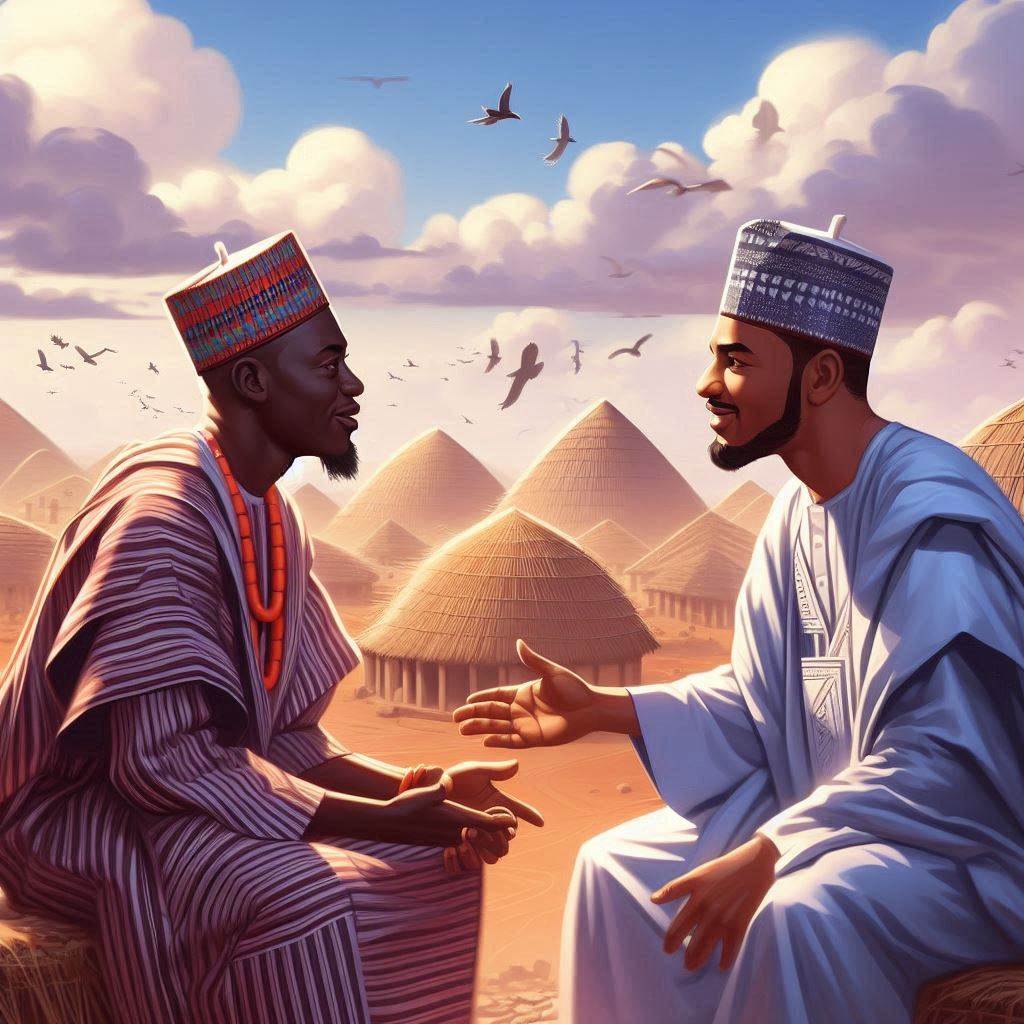
Strategies for Promoting Nigerian Languages in Literature
When it comes to promoting Nigerian languages in literature, there are several strategies that can be implemented to encourage the use of these languages in literary works.
These strategies not only help preserve the cultural heritage of Nigeria but also promote linguistic diversity and inclusivity.
Incorporate Nigerian Languages in Literary Events
One effective way to promote Nigerian languages in literature is by incorporating them into literary events such as book readings, poetry slams, and storytelling sessions.
By featuring works in Nigerian languages, authors and poets can reach a wider audience and raise awareness about the beauty and richness of these languages.
Create Writing Competitions and Awards in Nigerian Languages
Organizing writing competitions and awards that specifically focus on Nigerian languages can incentivize writers to create literary works in their native tongues.
This not only encourages writers to explore and experiment with their language but also helps nurture a new generation of writers who are passionate about preserving Nigerian linguistic heritage.
Collaborate with Schools and Universities to Include Nigerian Languages in Curriculum
One important way to promote Nigerian languages in literature is by advocating for the inclusion of these languages in the educational curriculum.
By introducing Nigerian languages as part of the curriculum, students can develop a deeper appreciation for their language and culture, leading to a greater interest in creating literary works in Nigerian languages.
Support Publishing Houses That Promote Nigerian Language Literature
Another strategy for promoting Nigerian languages in literature is to support publishing houses that specialize in publishing works in Nigerian languages.
By purchasing and promoting books written in Nigerian languages, readers can contribute to the growth and recognition of Nigerian language literature.
Transform Your Career with Expert Guidance
Get personalized mentorship consulting that’s tailored to your unique path. Our expert advice is actionable and exclusive.
Get StartedEstablish Literary Foundations and Organizations Dedicated to Nigerian Language Literature
Creating literary foundations and organizations that focus on promoting Nigerian language literature can provide a platform for writers, poets, and scholars to collaborate and exchange ideas.
These foundations can organize literary festivals, seminars, and workshops that highlight the importance of Nigerian languages in literature.
Importance of Incorporating Nigerian Languages in Educational Curriculum
Including Nigerian languages in the educational curriculum is crucial for preserving and promoting linguistic diversity in Nigeria. By teaching Nigerian languages in schools, students can develop a strong sense of cultural identity and pride in their heritage.
Additionally, incorporating Nigerian languages in the curriculum can help bridge the gap between different ethnic groups and promote unity and understanding among Nigerians.
In review, promoting Nigerian languages in literature is essential for preserving the cultural heritage and linguistic diversity of Nigeria.
By implementing strategies such as incorporating Nigerian languages in literary events, creating writing competitions in Nigerian languages, collaborating with schools to include Nigerian languages in the curriculum,
supporting publishing houses that promote Nigerian language literature, and establishing literary foundations dedicated to Nigerian language literature, we can ensure that these languages thrive and continue to be celebrated in the literary world.
Read: The Future of Psychology Education in Nigeria
Impact of Nigerian Languages in Literature and Folklore
Preserving Heritage and Identity
Nigerian languages play a crucial role in preserving cultural heritage and identity. They carry the essence of traditions, customs, and beliefs.
Through language, communities pass down their unique stories and wisdom. Each Nigerian language encapsulates the history and values of its speakers.
For example, Yoruba proverbs offer deep insights into the people’s worldview. Similarly, Igbo folktales highlight moral lessons and community values. Hausa poetry reflects the people’s history and social norms.
Enriching Literature
Nigerian languages contribute significantly to the richness of literature. Writers use indigenous languages to create authentic narratives.
These languages allow authors to express ideas in culturally resonant ways. Chinua Achebe’s use of Igbo in his novels adds depth and authenticity.
Wole Soyinka’s works often integrate Yoruba traditions and language. Nigerian literature in indigenous languages helps preserve linguistic diversity. It also promotes cultural pride and self-awareness among readers.
Vibrant Folklore
Folklore in Nigerian languages is vibrant and diverse. Each ethnic group has its unique set of stories and legends. These tales are often passed down orally from generation to generation.
Nigerian folklore includes myths, legends, fables, and proverbs. For instance, the tortoise tales in Yoruba folklore teach various life lessons.
Hausa folklore often includes historical epics and heroic tales. Igbo stories frequently feature animals and supernatural beings.
Cultural Significance
The cultural significance of Nigerian languages in folklore is profound. These stories reflect the values and beliefs of the people. They serve as a means of socialization for younger generations.
Folktales often embody moral lessons and ethical teachings. They teach children about right and wrong in engaging ways.
Nigerian languages in folklore help maintain cultural continuity. They ensure that traditional knowledge and values are not lost.
Promoting Diversity
Nigerian languages contribute to the country’s rich diversity. Each language represents a distinct cultural perspective. This linguistic diversity enriches the nation’s literary and folkloric traditions.
Nigerian authors often blend multiple languages in their works. This blending creates a unique literary style and enhances storytelling.
The diversity of languages promotes mutual respect and understanding among different ethnic groups.
In fact, Nigerian languages are vital in literature and folklore. They preserve cultural heritage and identity, enrich literature, and keep folklore vibrant.
These languages hold cultural significance and promote diversity. By valuing and preserving Nigerian languages, we celebrate the country’s rich cultural tapestry.
Nigerian languages ensure that future generations remain connected to their roots. They continue to inspire and educate through literature and folklore.
Conclusion
When exploring Nigerian literature and folklore, the rich diversity of Nigerian languages shines through.
Each language holds its own unique stories, proverbs, and cultural traditions that have been passed down through generations.
Through literature written in Nigerian languages, these cultural treasures are preserved and shared with the world.
Preservation of Cultural Heritage
Nigerian languages play a crucial role in preserving the cultural heritage of the nation.
They are a testament to the history, beliefs, and customs of diverse Nigerian communities.
By reading works in Nigerian languages, we gain insight into the rich tapestry of Nigerian culture.
Importance in Literature
Nigerian languages add depth and authenticity to works of literature and folklore.
They bring a sense of identity and connection to the stories being told.
Authors who write in their native languages are able to express themselves more profoundly.
Encouraging Support
It is essential for readers to appreciate and support literature written in Nigerian languages.
This support ensures that the unique voices and narratives of Nigerian communities are heard.
By supporting these works, we contribute to the preservation and celebration of Nigerian cultural heritage.
In closing, Nigerian languages in literature and folklore are vital for preserving cultural heritage.
We should encourage readers to appreciate and support works written in Nigerian languages for the preservation of our cultural heritage.

